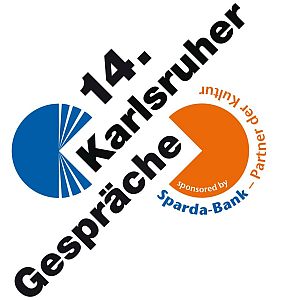A global economic order favors border-crossing crime. Its manifestations and possibilities of fighting them are subjects of the 14th Karlsruhe Dialogues on “Organized Crime – Dark Sides of Globalization”. From February 5 to 7, ZAK | Centre for Cultural and General Studies at KIT will organize presentations, discussions, and cultural events. The interested public is invited to take part in the mainly cost-free program.
Journalists are cordially invited. Please register by mail tos heneka-peters ∂does-not-exist.zak kit edu or by phone +49 (0) 721 608 8027.
Criminal networks are operating worldwide. According to estimations, up to 20 % of the global gross national product result from illegal business. The fact that organized crime may affect any political system was demonstrated also by the local FlowTex scandal at the end of the 90s. “Organized crime is a widely spread, but underestimated phenomenon,” says Professor Caroline Y. Robertson-von Trotha, Director of ZAK. “The actors build up worldwide networks and act even more professionally in this way.” According to Robertson-von Trotha, however, this urgent problem that shakes the democratic system to the core is not perceived adequately by the public.
The 14th Karlsruhe Dialogues focus on the political, legal, sociological, psychological, and economic aspects of organized crime. It will be concentrated on potential countermeasures, relationship to globalization, and the balance between security requirements and democratic freedom. In addition, the influence of organized crime on economy and politics shall be discussed. Smuggling of drugs and weapons, product piracy, human trafficking as well as the ambivalent role of women and new media in organized crime will be other topics of the symposium funded by the Foundation for Art and Culture of Sparda-Bank Baden-Württemberg eG and the city of Karlsruhe.

The opening will take place on Friday, February 5, 19.30 hrs at the Karlsruhe SpardaEvent-Center, Baumeisterstraße 21. In this connection, the preview of the documentary “My life - Roberto Saviano“ by Victor Grandits (ARTE/ZDF 2009) will be presented. Saviano, Italian journalist and author, has been dealing with the Neapolitan mafia for years already. His book “Gomorrha” was published in 2006 and made him famous.
The symposium on Saturday, February 6, will start at 9.30 hrs at the Chamber of Industry and Commerce, Karlsruhe, Saal Baden, Lammstraße 13-17. Adrian Kim-Fai Kwan, chief inspector for organized crime of the Hongkong Police, will speak about “Triades – the Chinese mafia at Hongkong and worldwide”. Dr. Wolfgang Hetzer, counselor of the Director General of European Anti-Fraud Office (OLAF) in the field of fighting corruption will concentrate on organized crime in Europe. Professor Alessandra Dino, lecturer for legal sociology, deviance and social change at the University of Palermo, will talk about the “Change of the role of women in the Cosa Nostra”. The conference languages will be German and English. Simultaneous interpretation will be provided.
The analytical discourse on organized crime will be accompanied by a series of cultural events: In cooperation with ARTE and ZKM | Center for Art and Media Technology, Karlsruhe, ZAK will organize a long film night with a number of documentaries and the motion picture “Kurz und Schmerzlos“ (Quick and Easy) by Fatih Akin on Saturday, February 6, 2010. On Sunday, February 7, 20 hrs, the INSEL of the Baden State Theater Karlsruhe will present a play reading of Maxim Biller’s “Kühltransport“ (Cooled Transport), a dramatic adaptation of the subject of human trafficking.
On Sunday, February 7, the congress will be closed by international participants discussing future strategies against international crime. The discussion will start at 11 hrs at the SpardaEvent-Center.
The opening on Friday, February 5, is booked out! The interested public is kindly asked to register for the other events (phone: +49 (0) 721 608 4384 or www.zak.kit.edu). Further information and the complete program can be found at www.zak.kit.edu.
In close partnership with society, KIT develops solutions for urgent challenges – from climate change, energy transition and sustainable use of natural resources to artificial intelligence, sovereignty and an aging population. As The University in the Helmholtz Association, KIT unites scientific excellence from insight to application-driven research under one roof – and is thus in a unique position to drive this transformation. As a University of Excellence, KIT offers its more than 10,000 employees and 22,800 students outstanding opportunities to shape a sustainable and resilient future. KIT – Science for Impact.
